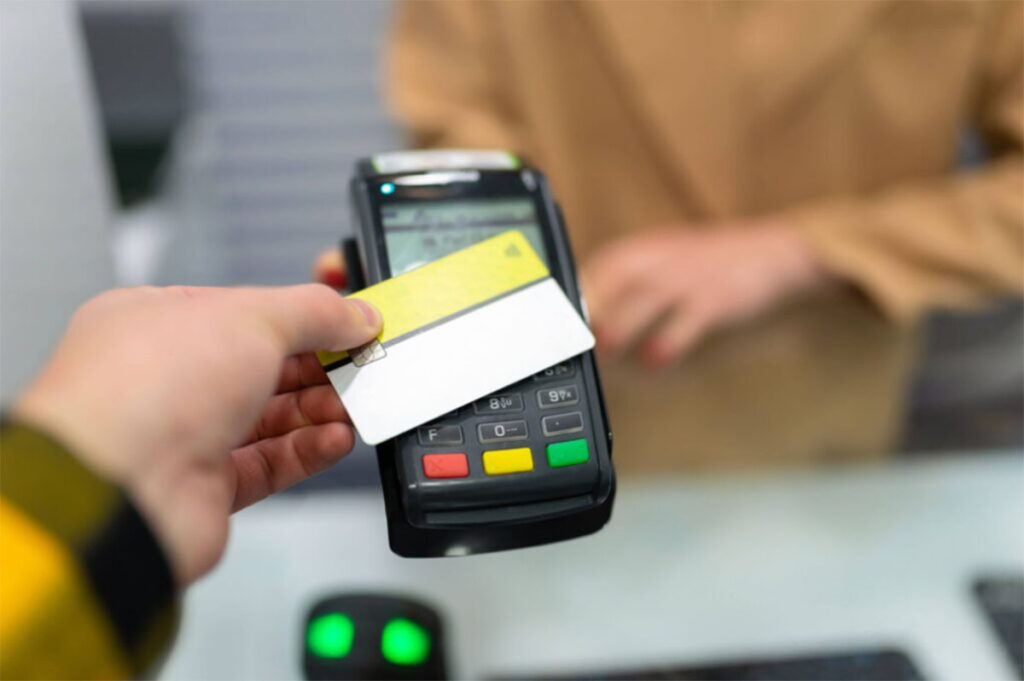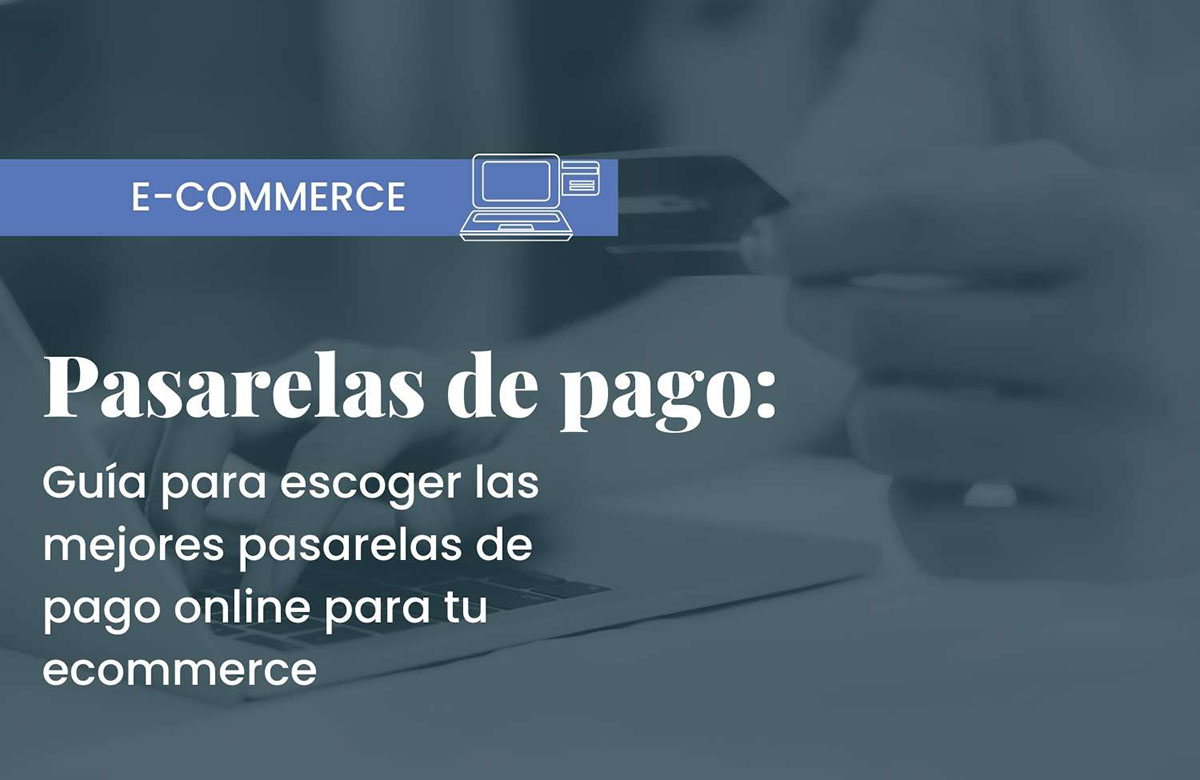The online sales sector and online payment gateways are booming worldwide. The pandemic has brought the need for some businesses to reinvent themselves and take on a role in the online world that they previously did not have. Therefore, the need to be competitive in this field has led to a continuous improvement dynamic in the sector’s core processes.
One of these processes involves payment methods and the need to build trust with customers who, until recently, had never made a purchase online. This is where payment gateways come into play—an essential element in the world of e-commerce—greatly influencing the sales capacity of our online store.
[poll id=”3″]What is an online payment gateway?
Payment gateways are essential tools in an e-commerce business because they provide security and trust in online transactions. They act as a virtual POS, authorizing card payments via the web or mobile.
In other words, we’re talking about platforms that facilitate online payments. They fit any online business, so there’s no need to worry about company size or type.
Payment verification is done instantly, securely, and directly to the customer’s bank account. If a refund is needed, they offer features that ensure customer satisfaction.
Difference between an online payment gateway and a virtual POS
A Virtual POS is a card payment method directly linked to the bank associated with your business. To obtain one, you must be a business owner or self-employed, have a website, and an active shopping cart.
Additionally, you must display the legal notice, delivery and return policies, and general conditions. Once these requirements are met, your bank provides you with a Virtual POS using specific credentials. This payment method integrates with your e-commerce site to make the purchase process easier for your customers.
How does it differ from a payment gateway? The payment gateway complements the Virtual POS, offering not only card payments but also other options and methods.

How does an online payment gateway work?
When customers are ready to pay, the website redirects them to a payment gateway to enter their credit card or banking information. Although there are several steps, digital transactions usually take just a few minutes.
The next step is encryption. Payment gateways encrypt the sensitive information used between buyers and sellers. In addition, the gateway performs fraud checks using built-in security protocols such as TLS (Transport Layer Security). After securing the connection, the card issuer verifies that there are sufficient funds in the account.
Which one should I choose for my business?
How can we integrate card payments into our website? If our website is an e-commerce store or includes any type of sales, it’s essential to choose a payment gateway that meets our needs. For this, it’s important to determine which payment methods we want to offer users to make the buying process easier for customers and maximize sales.
We should research which payment gateways can be integrated into our website and which accept the cards we want to support. Most payment gateways accept common cards such as Mastercard, Visa, or Maestro. However, some offer a wide variety of options, often adapting to the most popular cards in each country.
Beyond cards, there are many other payment methods, such as PayPal, cryptocurrencies, and emerging ones like Bizum. But which one should you choose among so many options? Don’t worry. Below, we provide the information you need to choose the online payment gateway that best fits your needs:
Secure online payment gateways
Are you concerned about your customers’ security or the risk of fraud? While there are exceptions, the vast majority of payment gateways offer a high level of security against these risks, so your customers can feel safe.
There is always some risk of fraud from users with bad intentions in e-commerce. Most of these gateways have anti-fraud systems that prevent such incidents. Furthermore, since these gateways are connected to different banking entities, the risk is minimized thanks to additional security filters.
In conclusion, payment gateways have a great capacity to protect both customers and sellers, creating a secure and trustworthy ecosystem that benefits both parties.

The most affordable online payment gateway
Which is the most affordable payment gateway? There isn’t a clear winner, as most operate within similar price ranges. The key is to determine what payment model or integration they offer.
- Some require an annual payment and small additional fees per sale.
- Others don’t charge a one-time fee but apply higher commissions per transaction.
It’s essential to analyze which model is most suitable for your business. This largely depends on your current sales volume.
- For new e-commerce sites or those with few orders, choosing gateways without annual fees is the smartest move.
- On the other hand, for high-volume e-commerce sites, reducing commissions is a priority, making an annual fee with lower transaction costs preferable.
Many of these gateways adjust their commission rates based on your sales volume. The higher the volume, the lower the fee, since the gateway’s profit lies in transaction quantity rather than high commissions—encouraging sellers to scale their businesses.
The most popular online payment gateways
- Paypal
- Stripe
- Authorize.Net
- 2checkout
- Amazon Pay
- Payline Data
- Braintree
- PayPro Global
- FONDY
- BlueSnap
- Mercado Pago
- Niubiz
- Swipe
- Payment Sense
- Redsys
- UniversalPay
- SiPay
2CheckOut – The best international online payment gateway
Most commonly, among the payment gateway offerings, you’ll find that many only provide the most used payment methods within a specific country. However, there are others, though fewer, that offer a wide variety of payment options without focusing on one country alone, allowing customers to pay using their preferred method.
Integrating one of these gateways is ideal if your e-commerce attracts buyers from different parts of the world, making their payment process much easier.
2checkout allows you to accept payments from over 200 markets across Europe. This is an excellent solution for European companies seeking an international payment gateway provider. It’s also one of the most cost-effective options, as it doesn’t charge a monthly fee.
The best online payment gateways for apps
If you have a mobile app for restaurants or e-commerce, it’s crucial to include a payment system in your online business. But “just” including it isn’t enough. The most important thing is that the payment method provides security and privacy for customers—no buyer will easily trust a platform with their banking details.
In addition to meeting the highest quality standards, payment gateways also simplify the buying process by avoiding tedious transactions. This builds trust in your store. The gateways best suited for in-app payments are:
- PayPal
- WePlay
- Zooz
- Square Capital
- Stripe
Managing an e-commerce business isn’t easy, and payment gateways aren’t your only concern. That’s why we recommend working with a web e-commerce agency. At Dos Setenta, we offer web consulting services in Madrid for e-commerce businesses. Our marketing agency has worked with online stores across all sectors. Let us help you with all our experience!



